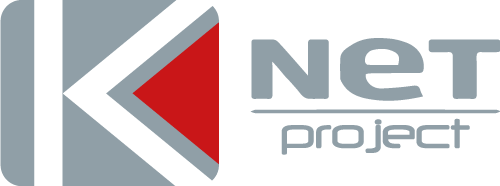Every one of us has experienced an upheaval in how we operate day-to-day over the past year. Some moments have been tough. Others heart-breaking. But we have seen over again that people haven’t been afraid to show up.
Since the beginning of the first wave in Feb 2020, people have put themselves on the line and reach out to the community. Not least in the business world where fear and instability had run riot. But at the same time businesses have adapted to new ways of working and new customer needs, they have surpassed a very steep learning curve and are coming out the other side successfully.
Due to our area of business, we have been working around the clock to answer questions and provide guidance and support to businesses and leaders who have found themselves in uncertain situations. Initially, we focused on keeping everyone updated on new legislations, financial aid, internal warning signs and have provided free business advice through our “Ask KNET” program. As time has moved on, we have been working closely with businesses who want to transform their activities to avoid stagnation, cuts and liquidation. On the other hand, alternative investments, mergers and brand collaborations are on the up.
What have we learned from our year of work and life during Covid-19? Most importantly, being kind and empathetic is of utmost importance; we have found ourselves asking “How are you?” or “I hope you are well” and mean it more than ever. We learned afresh to embrace challenges – almost as a way of life; the year 2020 didn’t give us a choice but to accept, and then adapt. Agility is no longer critical – it is a requirement. Agility is about adapting quickly to changes. But it isn’t simply an organisational thing; rather, agility needs to begin within each individual person if it is to thrive at the organisational level.
2021 holds hope, but we are still on the rocky road and kindness, hard-work and agility will get us through it. Here are some reflections from our team about how we have reacted and how we should move forward.
Volatility
Phenomena of the last twenty years such as globalization, digitalization and artificial intelligence have made the competitive context in which companies operate more volatile. Companies, often characterized by a reduced organizational structure, found themselves competing more and more with larger and more diversified organizations. In this context, it has become increasingly difficult to protect its competitive positioning, even when the latter is the result of decades of recognized quality and loyalty with the market. Volatility has become, especially in the last decade, the element with which our business leaders have increasingly had to deal with. As proof, the spread of business intelligence and data mining systems with the aim of reducing uncertainty, improving predictive capacity and mitigating business risks.
Covid-19
But what happens when, to the (now) “normal” market volatility, a sudden turbulence is added that can wipe out all the already few balances? This is what has happened since the end of 2019 with the viral spread of covid-19. The pandemic that has arisen has created a climate of absolute uncertainty, causing damage to the economic and social system unprecedented in the last fifty years. Within our borders, then, the viral pandemic made it clear that the operating model of Italian companies was inadequate to effectively face what was happening globally. In particular, two points have emerged as most deficient in our national companies, especially when they are small and medium-sized: the low flexibility in responding to the changing needs of the market and the low propensity for continuous learning by people and organizations in their complex.
The current competitive scenario
The covid-19 pandemic and the recession that has arisen in many countries has seriously affected numerous business organizations. Added to the turbulence and volatility of the market has been the need at the government level to make rapid changes to public policies and, in particular, to national health systems. The severity and speed of the crisis is amply demonstrated by analyzing the main macroeconomic data: the Eurozone GDP forecast is -7.8% compared to 2019 while that of the United States is -4.3%, with -4.4% globally compared to + 2.8% in 2019. The economic policy uncertainty index remained high for more than 200 days in 2020 against the 27 days recorded during the 2008-2009 international financial crisis. This level of uncertainty has only been recorded in the past at the local community level in the face of events such as Hurricane Katrina or the Fukushima nuclear disaster. This makes us understand the magnitude of the phenomenon we are experiencing today.
The failure of the current operating model
Italian companies generally operate with annual planning and programming. In essence, they prepare a budget for the beginning of the year and monitor the progress of their performance in relation to that budget. Therefore, on the basis of the actual differences in relation to the objectives, the business leaders modify the actions to be taken with the aim of realigning the management results to what was planned. In a context of this kind, any changes to the budget as well as the results obtained by the company, unless there are gross errors made in planning, are always less. But what happens when the turnover is reduced by 40% within a quarter? What happens when in a few months their customers abruptly withdraw their orders, almost canceling the company’s commercial backlog? Although this rarely happens, it is what is happening now and it is precisely what makes the current operating model of national companies inadequate.
A new business model is possible
Not all evil comes to harm and, starting from this belief, we believe that the current pandemic crisis can be the driving force for building a new business model. Of course, it is not easy for business leaders but our opinion is that nowadays it is essential to question the functioning of the company and to take covid-19 as an opportunity. We have thus identified 5 areas of intervention on which business leaders can now build a new business model in an attempt to capitalize on the difficult moment.
Horizon
In a context where planning and programming is difficult, the concept of “short term” is destined to lose value. Planning with an annual horizon appears – today more than ever – risky. Instead, it is more correct to plan and work with a medium-long term vision in order not to be attacked by the daily economic and health problems, thus losing the business vision.
Communication
Although communicating unpopular decisions is always difficult, never before are business leaders called upon to have honest, clear and transparent communication with all team members and, more generally, with the company’s stakeholders. We believe this can help the company build a solid business culture internally.
Talent
While it is understandable how difficult it is for a company to invest and think about new hires (and thus tighten its cost structure) when the market in which it operates is in the midst of a storm, experience has always rewarded those business organizations capable of attracting new talent during periods of greatest vulnerability. This has always been the case…
Relationships
If, on the one hand, the covid-19 pandemic has distanced us, in our private lives as well as in our professional lives, forcing us to live in isolation and with relationships constantly mediated by a monitor, it is equally true that the very impossibility of seeing each other has been the driving force for building more solid and transparent professional relationships. This is certainly an element on which to base the functioning of a business for the futur
Mission
The experience of the viral pandemic can be an opportunity to think about changing the company’s mission. Thinking of a company as a mere generator of income today seems, to say the least, anachronistic. This may be the right opportunity to rethink the role that the company itself has for its local community as well as for the business eco-system. Many business leaders are doing just that.

